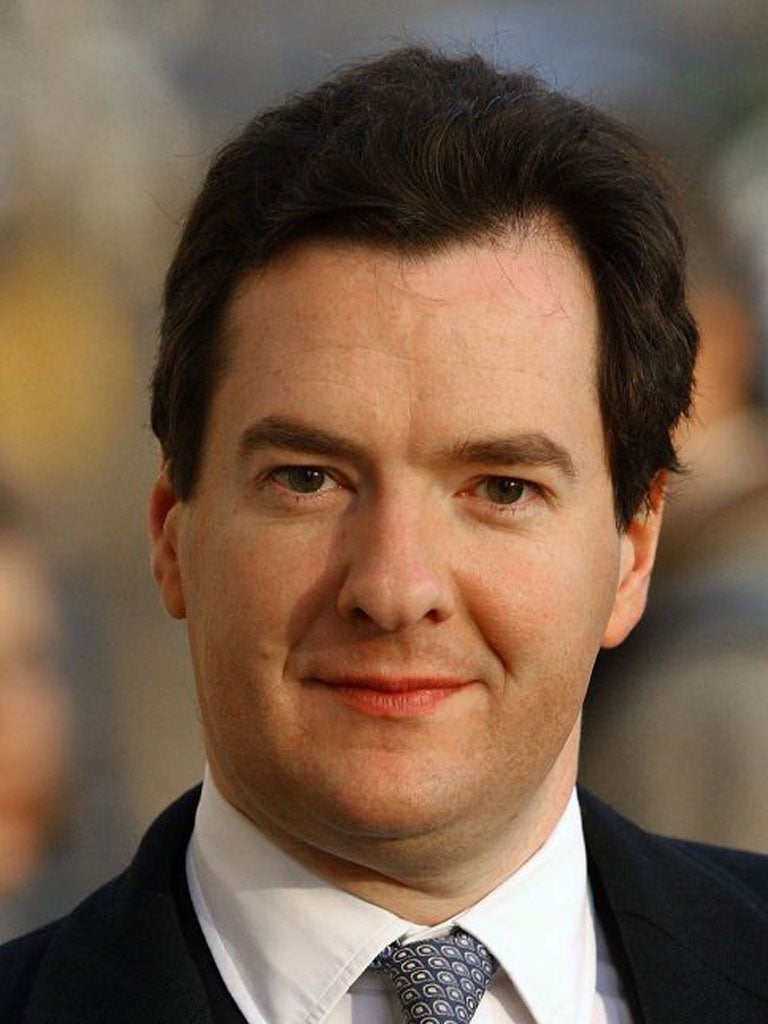Osborne ignored Budget warning that women would be hit hardest
Public sector pay shake-up will reverse workplace equality trend for first time, campaigners say

Your support helps us to tell the story
From reproductive rights to climate change to Big Tech, The Independent is on the ground when the story is developing. Whether it's investigating the financials of Elon Musk's pro-Trump PAC or producing our latest documentary, 'The A Word', which shines a light on the American women fighting for reproductive rights, we know how important it is to parse out the facts from the messaging.
At such a critical moment in US history, we need reporters on the ground. Your donation allows us to keep sending journalists to speak to both sides of the story.
The Independent is trusted by Americans across the entire political spectrum. And unlike many other quality news outlets, we choose not to lock Americans out of our reporting and analysis with paywalls. We believe quality journalism should be available to everyone, paid for by those who can afford it.
Your support makes all the difference.Controversial measures announced in the Budget will lead to a widening of the pay gap between men and women, reversing the long-term trend for workplace equality for the first time.
Campaigners and unions said the Government's determination to reduce public sector pay outside the South-east to market levels will hit women much harder than men, with some female workers fearing they may lose up to a fifth of their current salary.
The move is aimed at boosting private sector job growth and cutting the state wage bill. But findings by The Independent will renew pressure over the fairness of last week's Budget and fuel criticism of the Coalition, which is accused of letting women bear the brunt of its austerity measures.
Worst hit will be female graduates and professionals who are disproportionately represented in the public sector, it was claimed.
Chancellor George Osborne is accused of ignoring huge differences in the regional public sector premium between men and women in his own evidence submitted to the pay review bodies and threatening to end the narrowing of the gender pay gap for the first time since records began in 1997.
The Cabinet Office report includes a study by the Institute for Fiscal Studies (IFS) which shows that women working in the public sector enjoyed an average boost of 11.3 per cent in their salaries across the UK compared with the private sector.
Their male colleagues' pay was just 5.5 per cent higher nationally over the same period. But the regional analysis shows that in some areas the premium for female public sector workers was far higher.
In Scotland it rose to 19.9 per cent, compared with 5.6 per cent for men. In the North-east it was 18.3 per for women and 4.6 per cent for men.
Although the study did not address the issue directly, Wenchao Jin of the IFS said reducing wages equally for men and women across the public sector would increase the average gender-pay gap in the economy as a whole.
"Whatever happens to public sector wages tends to affect the average female wage more [than the male average], simply because women are more likely to be working in the public sector," she said.
Dai Hudd, deputy general secretary of Prospect, the union for public service professionals, said Mr Osborne's plan would lead to an exodus of skilled white-collar workers from the nations and regions and "drive a stake through the heart" of the UK.
"This is a massively regressive measure. For a Government that already has low poll ratings among women this will make them even worse," he said.
Mr Osborne is already under pressure for cutting the 50p rate for the highest earners last week while imposing a new "granny tax" on pensioners.
Unions claim that levelling off the public sector pay premium would suck £1.7bn out of workers' pockets and hit areas already struggling to cope with the aftermath of the recession.
Among the first groups likely to be affected by marketising salary rates will be employees at the DVLA in Swansea, Border Agency staff and those working in benefits offices whose pay freeze ends later this year.
But the impact on women will be particularly hard felt, it was claimed.
Anna Bird, deputy chief executive of the Fawcett Society, said in areas such as the North-east nearly half of all working women were employed in the public sector. Better and more equitable wages in the public sector had been an important source of promoting equality, she added.
"Driving down public sector pay to reflect private rates will cancel out many of the gains made for women's pay in recent years and, for the first time ever, risks reversing the progress made on closing the pay gap between men and women," said Ms Bird.
PCS general secretary Mark Serwotka said it would also affect women working in lower grades who were often the main carers of children and older relatives which meant they were less able to relocate.
"This Government's policies threaten to take us back generations by forcing women out of work and into the home," he said.
Join our commenting forum
Join thought-provoking conversations, follow other Independent readers and see their replies
Comments